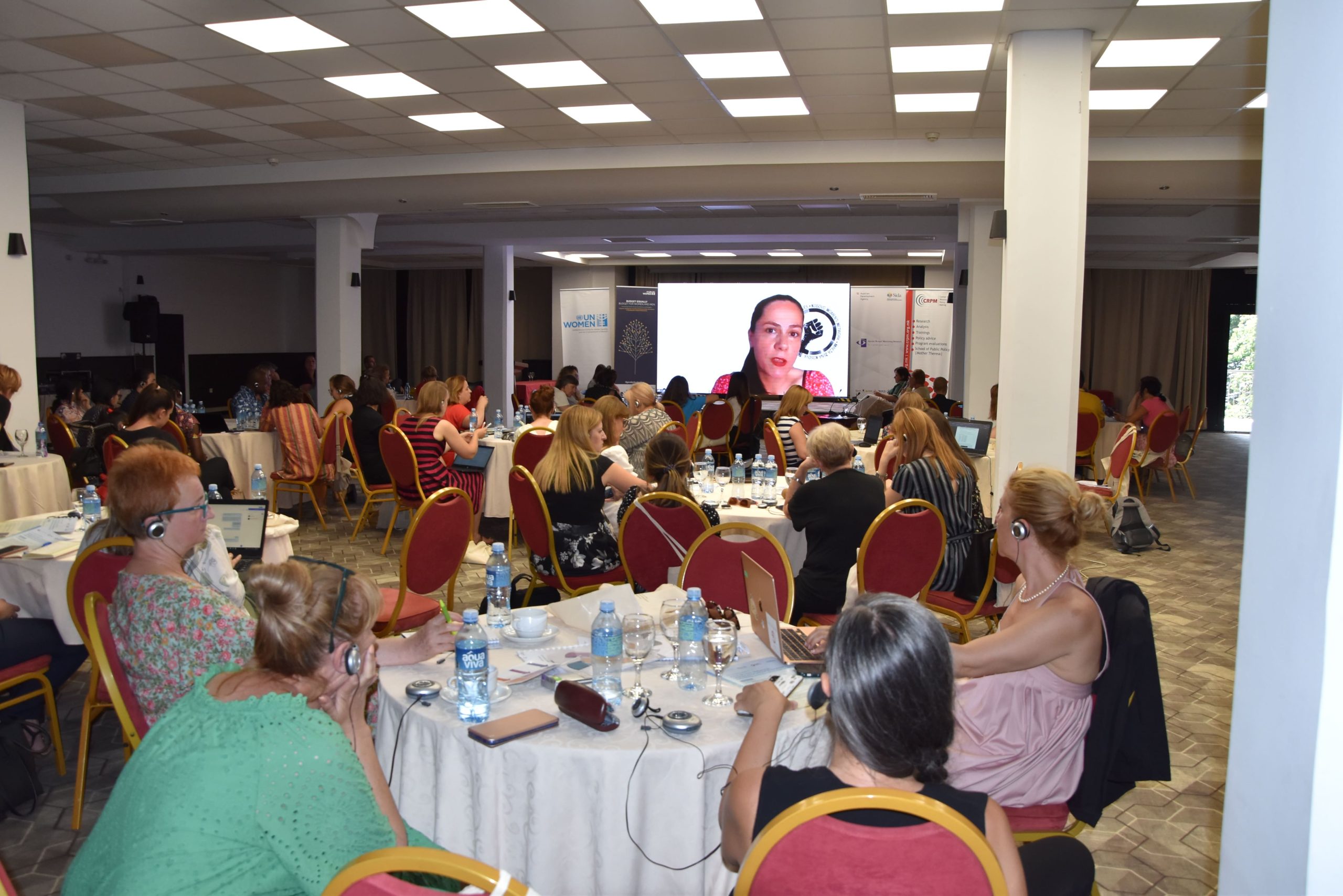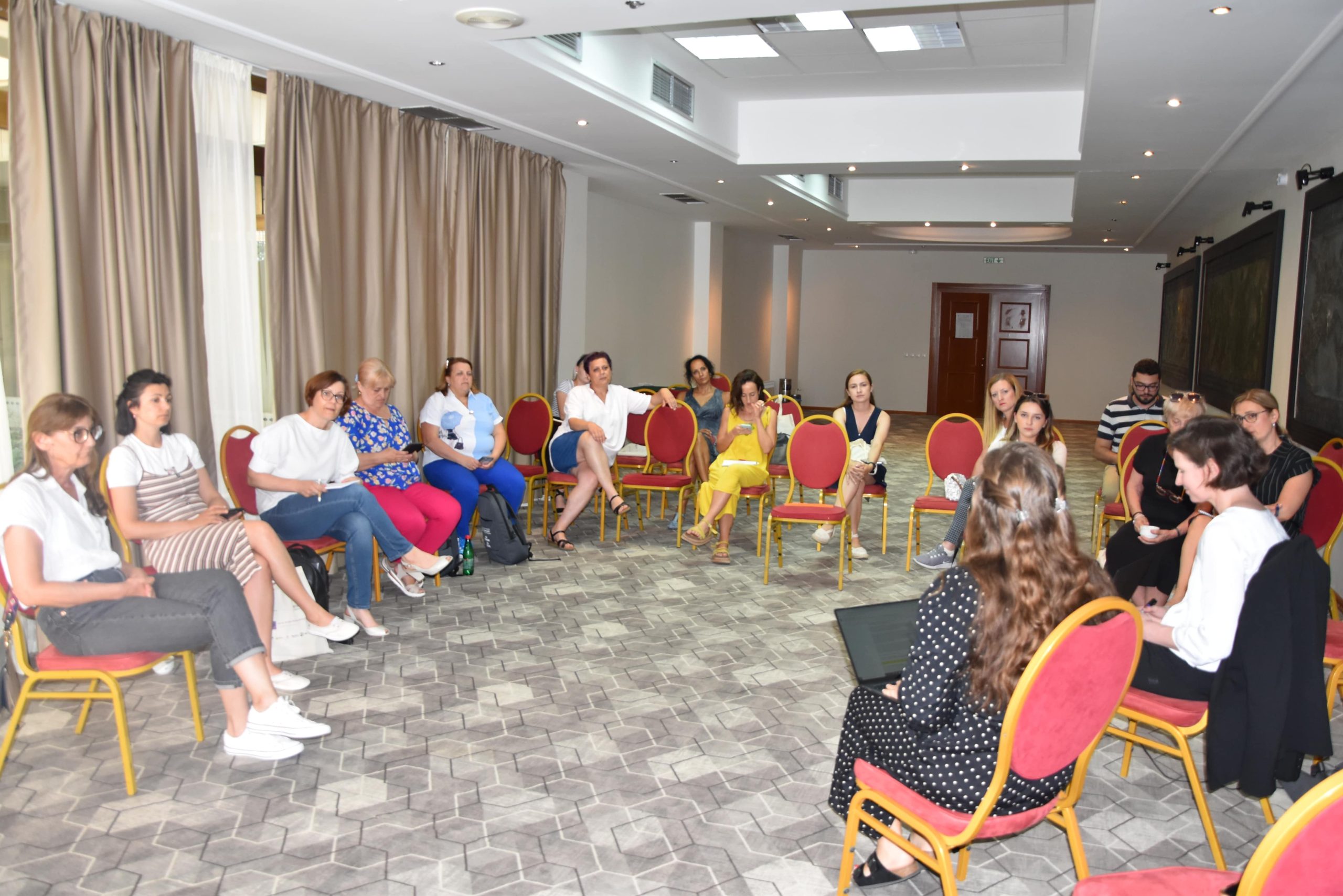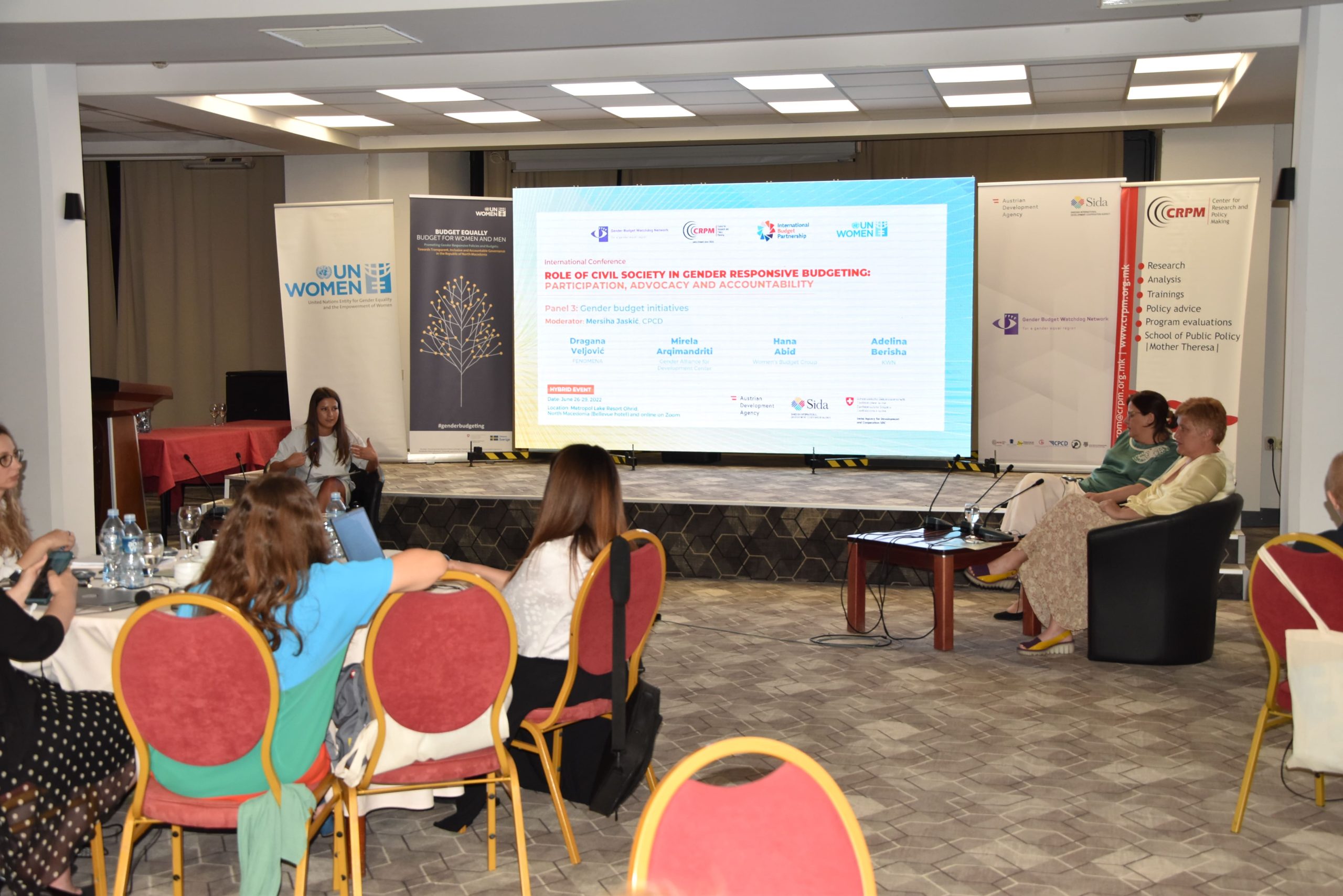The international conference Role of civil society in (gender responsive) budgeting: participation, advocacy and accountability, a joint event organized by the Gender Budget Watchdog Network of civil society organizations, UN Women and the International Budget Partnership was held from 26th to 29th June 2022 in Ohrid Macedonia. The conference aimed (i) to promote the different roles of civil society in advancing gender equality by using gender responsive budgeting tools;(ii) to exchange experiences between civil society, governments and international organizations on the effective strategies and approaches in using GRB tools to impact policy and budgets, including in the COVID-19 period; and (iii) to provide platform for networking and building strategic partnerships between civil society, government and international organizations.
The conference featured seven (7) panels and ten(10) workshops and gathered together over sixty (60+) participants from eighteen (18) countries from Europe, America, Asia and Africa.

Civil society activists, researchers and gender advocates discussedthe role CSOs in mainstreaming gender in policies and budgets, especially in times when resilience response is failing to address the different needs of women and men created by health, economic and other crises.

The participants internalized the different approaches for enhancing CSOs’ participation in local and central policy making and budgeting processes and the benefits it brings to engendering policy solutions and services. The conference was used as a forum to present approaches, challenges, successes and lessons learned in launching different participatory models for voicing women’s needs.
The conference provided room for CSOs as advocates to discuss the challenges and approaches for successful advocacy for gender responsive budgets.
CSOs also have a crucial role as watchdogs of the management and the distribution of public finances for the different needs of women and men. Their work in times of pandemic is even more relevant, particularly in development of emergency and resilience response. Therefore, watchdog methodologies and their results were also debated at the conference.
CSOs must be trusted partners of governments (local and central) in averting negative effects, and fitting CSOs work in the PFM reform agendas of governments in the region was prioritised in conference discussions.
Considering that in developing countries 14% of budgets are not executed, the issue of budget credibility has been raised and methods for assessing the impact of budget nonexecution on gender equality was specifically in focus of conference participants.

The workshops and networking activities were the most dynamic interventions of the conference. The participants agreed that networking is very beneficial but coalition building is not simple. It’s the combination of many layers, interests and kinds of actors. This diversity brings challenges such using different methodologies and frameworks and having different understands of what gender participation means. But on the other hand, these differences allow for the exchange of ideas and experiences across different context and perspectives which works to strengthen all those involved.
